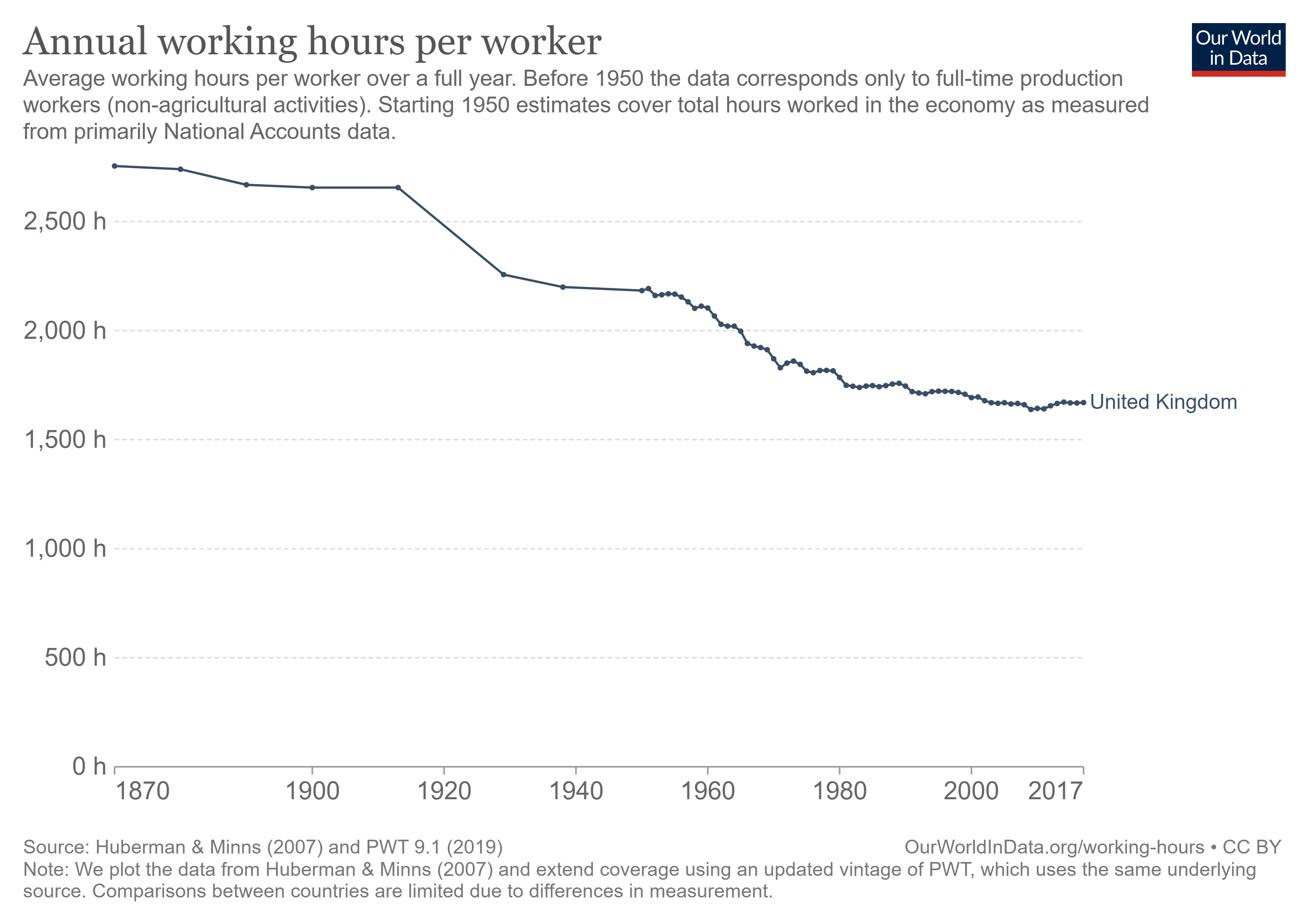
What's Next for the Four-Day Work Week Revolution?
In June, the UK started a six-month pilot programme for a shorter work week. More than 3,300 employees in 70 companies across a wide range of industries will be working four days a week with no impact on salary.
The project will follow the “100:80:100 model” which means full salary for 80 per cent of the working hours in exchange for 100 per cent productivity.
The researchers in Boston College, Cambridge and Oxford Universities alongside non-profit groups 4 Day Week Global, the 4 Day Week UK Campaign and the UK think tank Autonomy, are aiming to investigate the impact of shorter working hours on productivity, employee wellbeing, gender equality and the environment.
The Covid-19 pandemic has highlighted the growing need for increased flexibility and improved work-life balance, as companies embraced hybrid and remote practices – from recruitment, interviews or meetings to webinars and conferences. As a result, companies across the world are now experimenting with various approaches to find more productive ways of working; if the pilot scheme in the UK is a success (just like it was in Iceland) it has the potential to revolutionise the world of work.
As experts continue to examine the pros and cons of this game-changing approach, businesses are encouraged to examine their reasons for implementing the change and reflect on whether this scheme could solve existing issues or create further complications.
The benefits of a shorter week
Workplaces have been transformed, and with today’s labour market being strongly candidate-driven, the businesses must recognise that offering a job structure which maximises the quality of life is the new frontier for competition. Post-pandemic, the reduced-hour and result-oriented working structures are now vehicles for a competitive edge in the war for talent, providing an opportunity to achieve higher morale and increased productivity.
The researchers will be analysing the effect of reduced working hours on employees’ stress levels, health, energy, sleep, and overall life satisfaction.
Juliet Schor, a professor of sociology at Boston College and the lead researches said: “The four-day week is generally considered to be a triple-dividend policy – helping employees, companies, and the climate. Our research efforts will be digging into all of this.”
Productivity and 40-hour week
On average, employees in the UK work 42.5 hours per week, which is one of the longest working weeks in Europe. Employees are often said to work longer than their contracted hours, averaging 6.3 hours of unpaid overtime per week.
For many workers, shortening the work week would be a natural progression of how we work, as the concept of a five-day week (or eight hours of labour, eight hours of recreation and eight hours of rest as coined by Robert Owen in 1817) is rooted in industrial settings of 20th century and is not reflective of employment today.
The working hours in the UK have not significantly changed since 1970, despite the huge technological developments in nearly every industry. The enthusiasts believe that this potentially game-changing scheme will create a happier workforce with a positive impact on business productivity, customer experience and corporate social responsibility commitments.

How to implement a four-day work week?
How can your business address the challenges, overcome the hurdles and transition to a four-day week?
Take it slow
While many businesses are optimistic about the economic benefits, it is best to start implementing changes slowly. For example, starting with introducing reduced hours in a particular team or department for a limited time as a test.
Engage all your staff
One of the key reasons why so many people are looking forward to trialling a four-day work week is that it generally leads to an increased work-life balance. However, with different people performing a range of duties and having various motivations, is it important to encourage an honest discussion, among line managers and employees.
Assess your results
Once you have implemented the four-day week on a limited scope, make sure to consistently monitor the results. Is the change working? If not, why? Based on the analysis of your results, your organisation can decide whether to expand the scheme to the entire workforce.
Consider alternative options
Of course, a four-day week is not going to work for every single organisation – especially those that rely heavily on customer service. Perhaps, there are other types of flexible work patterns that can be suitable instead, including remote work, working part-time or hybrid. These are all the avenues that are worth exploring and discussing with your employees.
The pandemic has changed our ways of working, so if you are currently looking into restructuring your organisation, VMA GROUP’s Advisory Services have been developed in response to the changing talent needs of organisations. Utilising our own in-house specialists and a network of industry experts, we can offer organisations a number of additional talent services, tailored to their individual requirements, so find out more.
**************************************
VMA GROUP is a leading international interim, contract, temporary and permanent recruitment and executive search specialist. We are specifically focused on providing support to the communications, digital and marketing communities.
Our specialist practice areas cover: communications, corporate communications, internal communications, change communications, PR, media relations, financial communications, CSR, public affairs, investor relations, marketing, digital marketing and agency services.
We have a reputation for providing expert consultancy services and advice, supported by in-depth knowledge of the professions we recruit for. Our thought leadership and benchmarking studies have become go-to resources for the communications and marketing industry, supporting planning and decision-making for organisations of all shapes and sizes.
In the UK, VMA GROUP has offices in London and Manchester and in Europe, VMA GROUP has offices in Amsterdam and Brussels, but we work with organisations and individuals on a global basis.
VMA GROUP is committed to equal opportunities and is a Diversity Pledged Recruiter.
